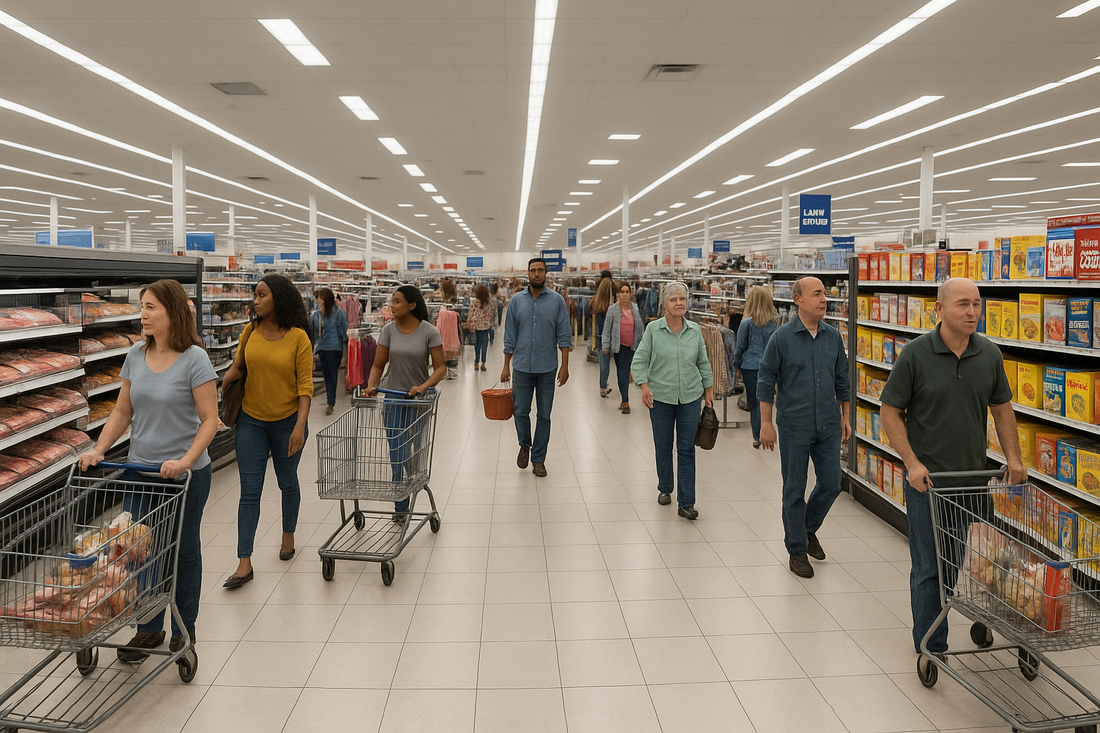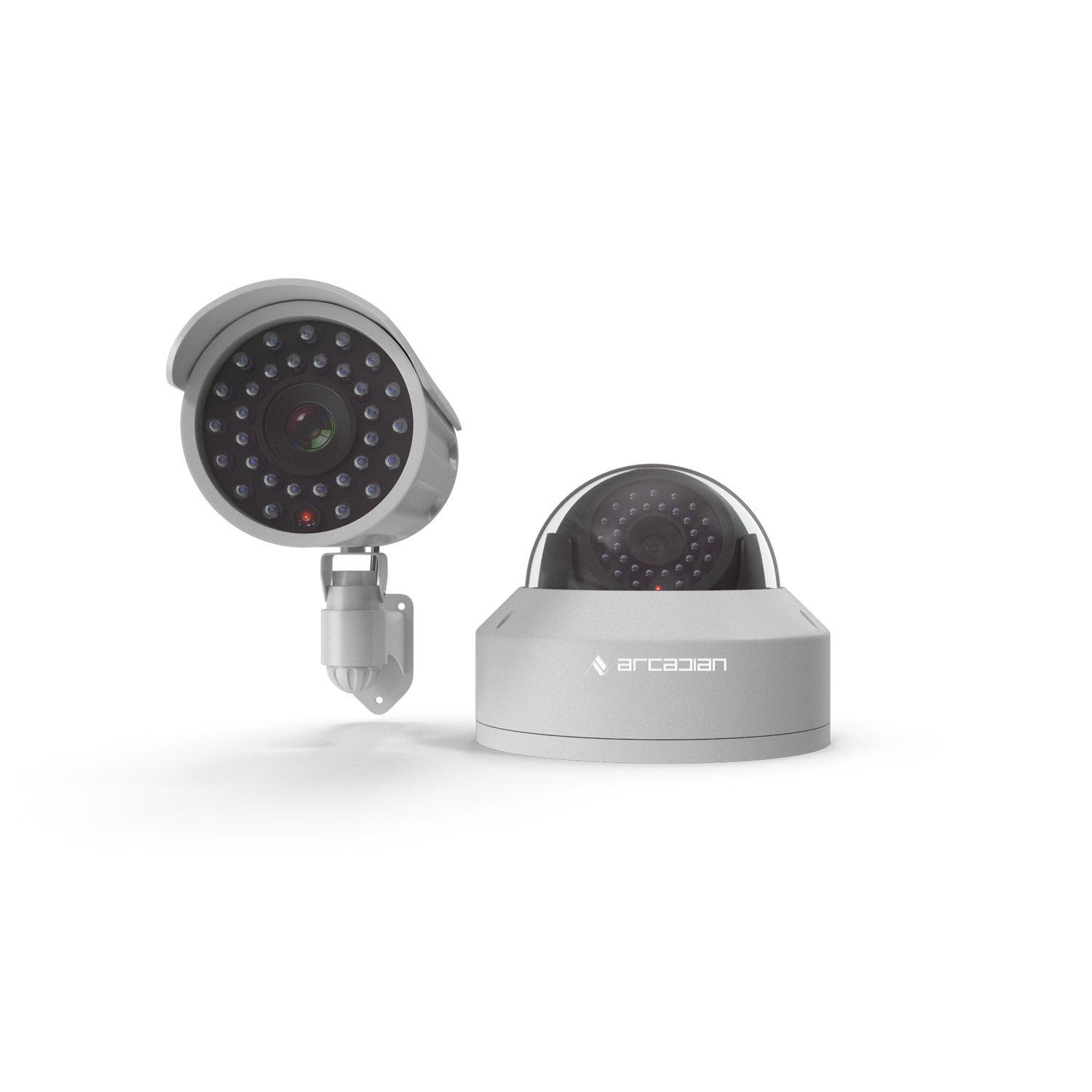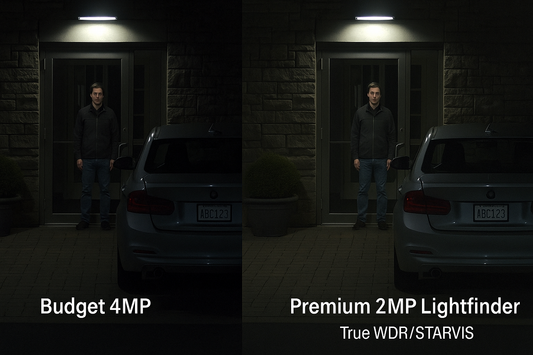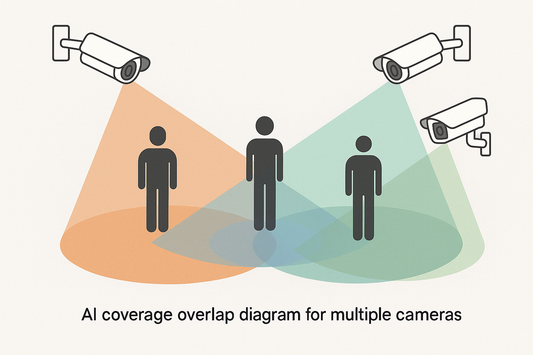Shoplifting Detection 2025: Why AI “Solutions” Fail and How Retailers Must Think Differently
From Walmart’s “NeverSeen” AI to Europe’s controversial Facewatch, retailers have thrown billions at shoplifting detection. But false positives, booster bags, and privacy backlash prove these systems don’t work. Here’s why ArcadianAI takes a different path.

Introduction
Retail shrink is the silent killer of profitability. The National Retail Federation (NRF) reported that shrink hit $112.1 billion in 2022 across U.S. retail—up from $93.9 billion in 2021. A significant driver? Shoplifting and organized retail crime (ORC).
Retailers are desperate for solutions. Enter the tech vendors: Everseen (Ireland, Walmart’s AI partner), Facewatch (UK, facial recognition), Auror (New Zealand, crime-sharing platform), and Veesion (France, gesture-recognition AI). They pitch AI as the silver bullet. Catch thieves in real-time. Stop shrink. Protect margins.
But in practice, these systems repeatedly fail. Employees call Everseen “NeverSeen” because it misses obvious theft. UK regulators investigated Facewatch for GDPR breaches. Auror’s crime-sharing database risks false entries and “blacklisting at scale.” Veesion’s gesture recognition flags people picking up multiple meat packs as suspicious.
And then there’s the reality of self-checkout theft. Rather than curbing losses, self-checkout has doubled theft risks. From Reddit LP forums to Financial Times features, the verdict is consistent: AI shoplifting detection is broken, expensive, and dangerous when misused.
So why do these systems fail? And what must we do differently in 2025 and beyond?
This blog dives deep into the failures, exposes the hype, and explains how ArcadianAI + Ranger rethinks loss prevention for an era of ORC crews, meat-packing scams, and customer privacy concerns.
Quick Summary / Key Takeaways
-
False positives plague AI theft detection, overwhelming staff.
-
Walmart’s Everseen AI failed—nicknamed “NeverSeen.”
-
Facewatch faces GDPR backlash for privacy violations.
-
Auror’s offender database risks false blacklisting.
-
Meat and produce scanning confuses AI models, fueling false theft claims.
-
Self-checkout theft rates are nearly double cashier lanes.
-
ArcadianAI + Ranger uses behavior-driven, privacy-first AI for smarter, actionable alerts.
Background & Relevance
The retail crime wave is no longer anecdotal.
-
NRF 2023 Report: Shrink accounted for 1.6% of sales in 2022, equaling $112.1 billion.
-
FBI (2024): ORC cases rose 26.5% YoY, with multi-state booster crews exploiting weak detection systems.
-
Target (Sept 2023): Closed nine stores across New York, Seattle, Portland, and San Francisco citing theft and staff safety.
-
Walmart (Dec 2023): CEO Doug McMillon admitted theft could force price hikes or closures.
With margins razor-thin in groceries and apparel, shoplifting AI promised salvation. Instead, it delivered disappointment.
Core Topic Exploration
1. Walmart & Everseen: From Promise to “NeverSeen”
-
The Hype: Walmart partnered with Irish AI firm Everseen, touting real-time detection of missed scans at self-checkout.
-
The Reality: A 2021 Wired investigation revealed the AI “missed blatant shoplifting while flagging innocent behavior.” Employees sarcastically nicknamed it “NeverSeen.”
-
Reddit threads confirm:
“Half the time it flags customers picking up multiple meat packs or scanning bananas wrong—it’s useless.”
-
Walmart quietly scaled back Everseen, though it never admitted outright failure.
Lesson: Detection without context = useless noise.
2. Facewatch: Surveillance or Harassment?
-
The Hype: UK-based Facewatch sells facial recognition to retailers like Southern Co-op. “Stop repeat offenders at the door.”
-
The Reality:
-
The UK’s ICO (Information Commissioner’s Office) launched investigations into GDPR breaches.
-
Local press reported wrongful bans and innocent shoppers being misidentified.
-
Civil liberty groups call it “blacklisting by algorithm.”
-
Facewatch claims 98% accuracy—but critics note this ignores demographic bias. Studies show facial recognition is 10–100x less accurate on darker skin tones (MIT, NIST).
Lesson: Identity-based surveillance erodes customer trust and risks lawsuits.
3. Auror: Collaboration or Blacklist at Scale?
-
The Hype: New Zealand startup Auror markets a crime intelligence platform used by Kroger, Walmart Canada, and Woolworths. It lets retailers share offender data.
-
The Reality:
-
Relies on human + AI inputs—suspect data accuracy.
-
Critics warn of “blacklisting innocent people across entire retail chains.”
-
GDPR and CCPA lawsuits loom over such databases.
-
Reddit LP managers:
“It’s only as good as the entries. If your cashier enters a false incident, that person could be flagged chain-wide.”
Lesson: Scale amplifies both utility and error. Without bulletproof accuracy, blacklists create liability.
4. Veesion: Gesture Recognition Isn’t Enough
-
The Hype: Paris-based Veesion claims to detect theft by analyzing gestures—like slipping items into a bag.
-
The Reality:
-
Picking up multiple meat packs often triggers false alerts.
-
Independent retailers complain of alert fatigue: 10+ alerts a day, 90% false.
-
ORC crews easily adapt by acting “normal.”
-
Lesson: Movement ≠ intent. Gesture AI alone cannot solve shrink.
5. The Self-Checkout Paradox
Self-checkout was meant to cut costs. Instead, it invited theft.
-
University of Leicester (2022): Self-checkout theft rates are double cashier lanes.
-
Financial Times (2023): “Missed scan AI” at Tesco wrongly flagged legit shoppers, sparking backlash.
-
Reddit testimony:
“The AI flags people for forgetting to scan bottled water or misplacing meat in the bagging area. Meanwhile, boosters walk out untouched.”
Lesson: Self-checkout is inherently flawed for loss prevention.
6. Why Meat & Produce Are a Nightmare for AI
-
Meat packs often overlap barcodes → missed scan alerts.
-
Plastic bags obscure items, tricking vision systems.
-
Variations in weight/size (bananas, grapes, bulk meat) create inconsistent detections.
Result:
-
False positives against honest shoppers.
-
Staff interventions that embarrass customers.
-
Actual thieves blend in with noise.
Comparisons & Use Cases
Table: Why Today’s Shoplifting Solutions Fail
| Vendor / Tech | Promise | Reality | Example Failure |
|---|---|---|---|
| Everseen | Real-time theft detection at self-checkout | False positives, missed theft | Wired: nicknamed “NeverSeen” by Walmart staff |
| Facewatch | Facial recognition bans repeat offenders | Privacy backlash, GDPR probes | ICO investigation, wrongful bans |
| Auror | Crime-sharing database | False entries = blacklisting | Kroger/Walmart Canada risk lawsuits |
| Veesion | Gesture recognition AI | Over-flags meat/produce | Alert fatigue, 90% false positives |
| EAS Tags | Simple theft deterrent | Easily defeated by booster bags/jammers | ORC crews adapt instantly |
| Self-Checkout | Lower labor costs | Doubled theft rates | FT + Leicester studies |
Common Questions (FAQ)
Q1: Why do AI shoplifting systems trigger so many false alerts?
Because they confuse normal shopping behavior (picking multiple meat packs) with theft. Context is missing.
Q2: Are facial recognition systems legal in retail?
In the U.S., yes (mostly), but restricted in the EU under GDPR. Some U.S. cities like Portland have banned private use.
Q3: Does self-checkout increase theft?
Yes—studies confirm theft is nearly double at self-checkout.
Q4: Can AI stop organized retail crime?
Not alone. ORC crews adapt fast with booster bags, jammers, and distraction tactics.
Q5: What’s the smarter approach?
Behavior-driven AI with human oversight, privacy compliance, and multi-sensor fusion.
Future Outlook: What Actually Works
Instead of flawed identity or gesture recognition, the next era must focus on:
-
Behavior-driven detection (anomalies in patterns, not faces).
-
Privacy-first AI (pose-based, anonymized, GDPR-compliant).
-
Multi-sensor fusion (video + RFID + weight sensors).
-
Human-AI collaboration (alerts assist staff, not replace judgment).
-
Cloud-native agility (ArcadianAI vs legacy NVRs).
Research innovations:
-
Shopformer (2024, arXiv): Uses pose recognition instead of identity, reducing bias.
-
PoseLift Dataset (2025): Builds anonymized pose data for training.
-
Hybrid Autonomous Stores: Combining LiDAR, RFID, and video for robust detection.
ArcadianAI’s Ranger integrates these principles:
-
Camera-agnostic cloud platform.
-
Context-aware behavioral AI.
-
Actionable alerts, not noise.
Conclusion & CTA
Billions have been wasted on AI shoplifting solutions that don’t deliver. Walmart’s Everseen debacle. Facewatch’s GDPR nightmare. Auror’s risky blacklists. Veesion’s gesture fatigue.
The retail industry cannot afford more hype cycles.
ArcadianAI’s Ranger represents the next step: behavior-first, privacy-driven, ROI-proven AI that adapts as criminals evolve.
Security Glossary (2025 Edition)
-
AI Shoplifting Detection — Computer vision systems that attempt to spot theft via cameras, gestures, or anomalies.
-
Auror — Crime intelligence platform used by Kroger, Walmart Canada; criticized for blacklisting risks.
-
Booster Bag — A foil-lined bag that blocks EAS tag signals.
-
EAS (Electronic Article Surveillance) — Tag/antenna system for theft deterrence, easily bypassed.
-
Everseen — Irish AI firm behind Walmart’s failed “NeverSeen” system.
-
Facewatch — UK retailer facial recognition vendor under GDPR probe.
-
False Positive — Incorrectly flagging theft when none occurred.
-
Gesture Recognition AI — Video analysis of movements, e.g., Veesion.
-
Missed Scan AI — Self-checkout detection of unscanned items.
-
Organized Retail Crime (ORC) — Professional theft crews reselling goods online.
-
Privacy by Design — Engineering principle embedding compliance into systems.
-
Ranger (ArcadianAI) — Cloud-native, behavior-driven surveillance assistant.
-
Retail Shrink — Inventory losses from theft, fraud, and admin errors.
-
Self-Checkout Theft — Theft via intentional/accidental mis-scans.
-
Tag Pollution — Incorrect EAS alerts due to orientation issues.
-
Veesion — French AI startup using gesture recognition.
-
VSaaS (Video Surveillance as a Service) — Cloud-hosted surveillance platforms like ArcadianAI.

Security is like insurance—until you need it, you don’t think about it.
But when something goes wrong? Break-ins, theft, liability claims—suddenly, it’s all you think about.
ArcadianAI upgrades your security to the AI era—no new hardware, no sky-high costs, just smart protection that works.
→ Stop security incidents before they happen
→ Cut security costs without cutting corners
→ Run your business without the worry
Because the best security isn’t reactive—it’s proactive.







